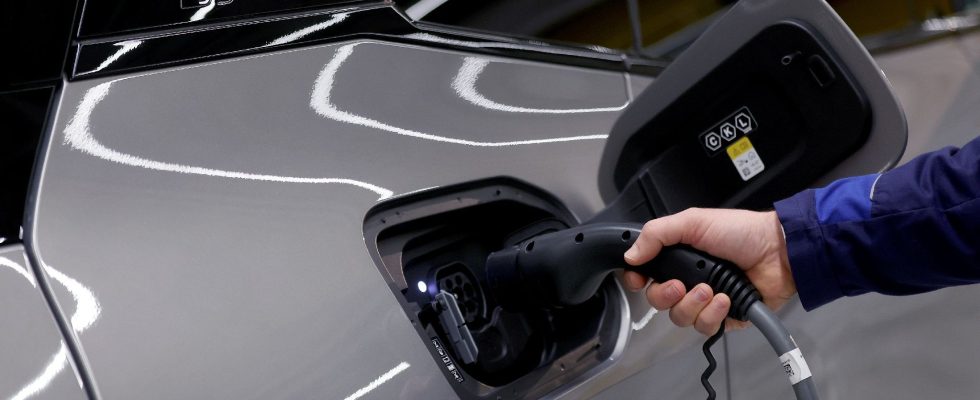“It changed my relationship to the road”
Sébastien is just in his forties, three teenagers, a house in the Paris suburbs. The start-up of which he is the IT manager assigned him a Renault Zoe, his first electric car. “I’ve had it for four years, it has totally changed my relationship with the road, he says. Because you have to be careful with the battery, I drive much more relaxed, I accelerate smoothly, I drive at 110 on the highway…”
Today, Sébastien uses it mainly to get to work, in the center of Paris, around fifty kilometers there and back. No more than the price, the autonomy was not a problem. Especially since he had a home charging station installed at his home, partly paid for by Renault.
What about holidays, weekends? “We take the other car, the thermal one… But how many long journeys do we make, four a year? And there, we are seriously thinking about changing our way of traveling, taking the train and renting a small… electric car the arrival.” Sébastien has become a fan. For the future of the planet, for driving comfort and silence, to put an end to gasoline – the rise in prices has finally convinced him. “Never again will I buy a thermal car,” he concludes.
“Me? Never again!”
The story was reported by East-Republican two years ago, that of a pensioner who was very upset about his Jaguar i-Pace, resold with loss and a crash two months after the purchase and a nightmarish trip.
One evening in January, with his wife, he took the road from Toul to go and look after their daughter’s children urgently in Paris, 350 kilometers away. It’s cold, it’s snowing, “the computer warns me that the autonomy, of 480 kilometers announced, drops to 400”. Then, “with the headlights, wipers, heating”, at 240. The couple stops to recharge, but… the manufacturer’s card is not compatible with the terminals. Purchase of two local cards, two hours of waiting, the car leaves, but the recharge is insufficient. His GPS then directs him to a second terminal… closed. With the help of the police, he then comes across a Tesla super charger, which only accepts Teslas. He ends up stopping at a hotel, which has a domestic outlet. He will arrive at his daughter’s the next day, at the end of the morning.
Since then, specialized sites have analyzed the sinking, the result of the driver’s inexperience, the poor indications provided by his on-board computer and the insufficient number of charging stations. In the meantime, they have crossed the 100,000 mark in France. Not enough to bring it back to electric.
The ZFE, it’s not won
“No one wants to knowingly pollute.” Aurélie Gazut does not throw stones at the 49% of French people – up 6 points over one year – who, in the very recent Barometer of Low Emission Zones 2023 that she directed for the CSA institute, say they are unfavorable to it. She even finds excuses for them: the public authorities do not do “all the necessary educational support work”, she believes.
Xavier Terryn, of the CSA institute, adds: “In terms of information, with regard to the deadlines that are proposed to us – the 43 French agglomerations of more than 150,000 inhabitants will have to have established a ZFE at the end of 2025, editor’s note -, we are far from it,” he said. As evidenced by these 21% of French people who, according to the study, are mistaken about the value of their Crit-Air sticker, this sesame which, however, will open or close the doors of city centers to them.
While one in ten French people are concerned, they are 36% to declare that they will accommodate the fines, and the same number that they do not have “a penny to buy a new vehicle anyway”. As Xavier Terryn says, “the social bomb is there”.
